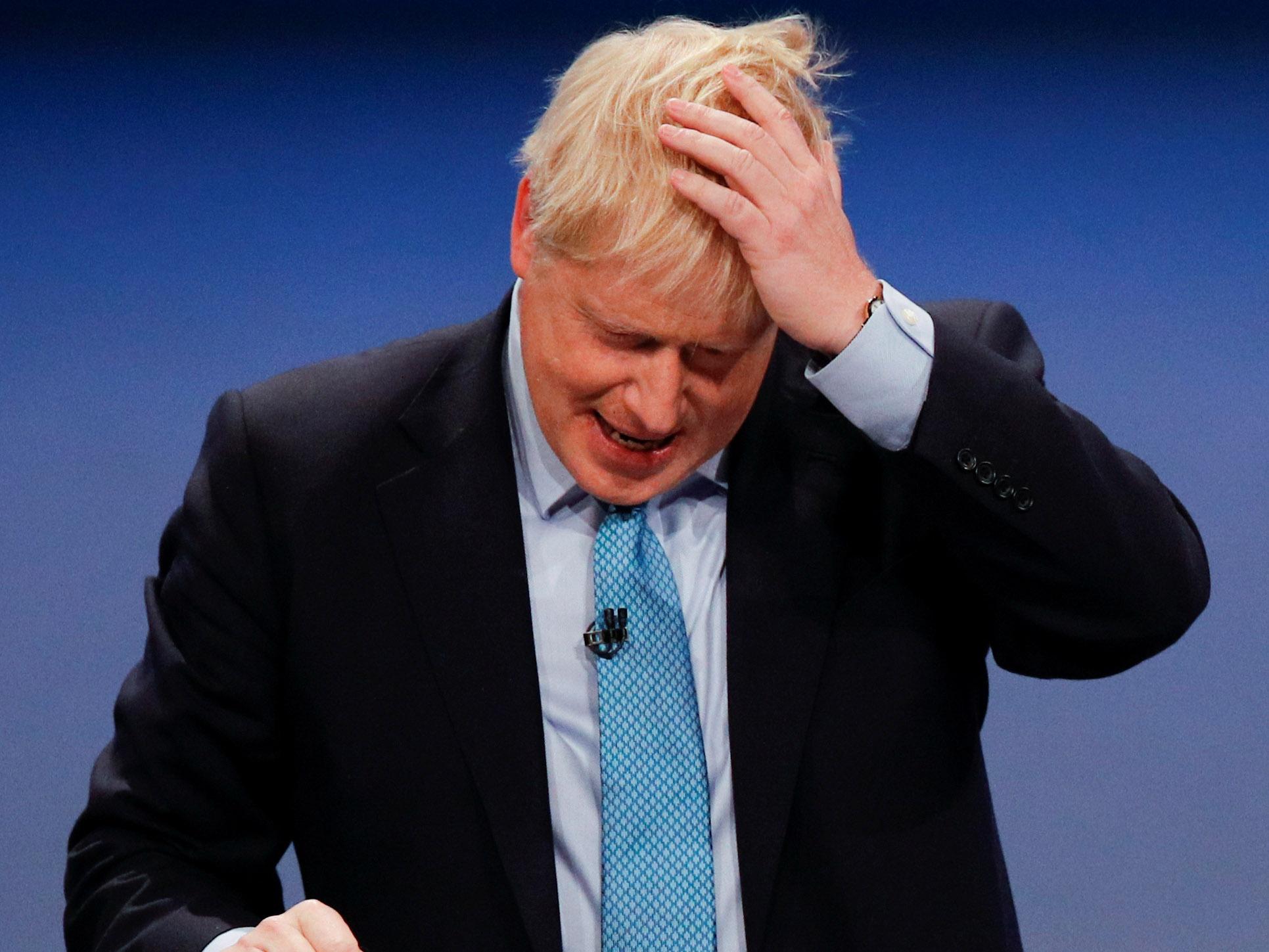Johnson’s weak proposals show only the people can ‘get Brexit done’
The Johnson agreement may yet evolve into the one that satisfies all sides and allows Brexit to take place in a matter of days... but logic and experience suggest otherwise

Whether or not Boris Johnson deliberately designed his Brexit proposal with a view to being rejected by the EU, it has certainly been greeted with scepticism, albeit polite.
The most incisive comment came from Michel Barnier, the EU’s lead negotiator, who called it a “trap” for the EU. Whereas the withdrawal agreement concluded with Theresa May floating the prospect of the UK being kept in the EU customs union against its will under the “Irish backstop”, the Johnson plan proposes that Northern Ireland remains in the EU single market, with the Northern Ireland executive and assembly having the opportunity to opt out either by the end of the transition period (2020), or at four-year intervals thereafter.
Thus, the EU is being invited to take part in a new relationship with the UK that can be unilaterally altered by the UK, and with dramatic effect. Thus, if Northern Ireland decided to leave the “zone of regulatory compliance” stretching across the island of Ireland, and begin, with the rest of Britain, to diverge from EU and Irish products and other standards, then the likelihood of checks at the border itself is hugely increased. This is because of the geographic sensitivity of movements of livestock and agrifood, which means that they cannot be dealt with in customs centres many miles from the border.
Of course, with a four-yearly review of the entire withdrawal agreement – not that this has yet been proposed by the UK – then a change of this nature could be made conditional on other changes to the free trade agreement, for example, or the EU budget contributions. Even in this case, though, the Irish Republic would find itself with a harder border with Northern Ireland than currently exists.
The Irish government’s concerns about customs checks are economic as much as political and geographic. It is not simply a matter of defending the integrity of the EU single market or the Belfast Good Friday Agreement. Leo Varadkar has made it clear that splitting the island of Ireland into two customs regimes means checks and friction in trade – irrespective of where the customs checks are carried out. That appears to be something the Irish government cannot compromise on, and which is central to the Johnson plan.
The Irish government also objects to the veto that the Northern Ireland executive and assembly will hold on the continuance of the Irish zone of regulatory compliance, which in effect allows the Democratic Unionist Party to determine the future relationship between the neighbouring countries. This is so politically charged that it is difficult to understand why the prime minister placed such a blatant provocation into the document. Perhaps it is simply that he has little understanding of the history and attitudes of the Irish towards partition, and sees the border, as he once remarked, as being equivalent to that between the London boroughs of Islington and Camden.
Mr Johnson also believes, as revealed in a leak last year, that the Irish border problem is irrelevant, saying: “It’s so small and there are so few firms that actually use that border regularly, it’s just beyond belief that we’re allowing the tail to wag the dog in this way. We’re allowing the whole of our agenda to be dictated by this folly.”
Even if Ireland and the rest of the EU were inclined to agree to Mr Johnson’s demands, they are also well aware that, rightly, parliament has legislated to prevent no-deal Brexit taking place with a vote in the House of Commons. This is the law of the land, even if Mr Johnson and his colleagues put the rumours around that they will disobey it or have found some cunning ploy to avoid having to ask for an Article 50 Extension.
The Johnson agreement may yet evolve into the UK-EU withdrawal agreement that satisfies all sides and allows Brexit to take place in matter of days, but logic and experience suggest otherwise, and we will know soon enough – probably in good time before the EU heads of government summit on 17 October.
At that point, or soon thereafter, the EU will be asked to grant a further Article 50 extension, and will be entitled to request that the UK use the time to find a new way out of the impasse. Of the two options, a general election or a Final Say referendum, only the latter has the capacity to answer the right question. An election would produce another hung parliament and another deadlocked House of Commons, whoever happened to get the most votes or seats in the Commons (not necessarily the same party). Only the people can “get Brexit done”.
Join our commenting forum
Join thought-provoking conversations, follow other Independent readers and see their replies
Comments